Our Journey to Organic Vietnamese Coffee

When Copper Cow Coffee founder Debbie Wei Mullin set out to start a Vietnamese coffee company, it wasn't just to share her Vietnamese-American heritage and passion for great coffee (although that was definitely part of the reason!). It was always about something much bigger -- creating better opportunities for Vietnamese coffee farmers through more sustainable practices. Now, we are beyond excited to announce that after years of work, education, research, and hundreds of thousands of investment dollars, Copper Cow is introducing the first ever Certified Organic Vietnamese coffee this fall!
Bringing Organic Vietnamese Coffee to Life
Vietnam is the world's second largest producer of coffee -- so you might be surprised to learn that Vietnam has never produced any Certified Organic coffee. In fact, historically, they've been largely left out of the conversation when it comes to premium coffee and sustainability.
Why is this the case? Well, much of the hype about "premium" coffee centers around arabica coffee beans, so a lot of the investment in sustainability and quality improvement historically went to arabica growers. Vietnam, on the other hand, specializes in nutty robusta coffee beans. Put frankly, there were a lot of robusta haters out there when Copper Cow was getting started. But our success as a company is proof that high quality robusta can be just as delicious as arabica -- maybe even more! Just as important, robusta is incredibly climate resilient, naturally resistant to most pests, and therefore, well-positioned to be grown organically, even in the face of climate change.
The other barrier to Vietnamese coffee going organic? Most of Vietnam’s coffee farms are just too small. The average Vietnamese coffee farm is less than 5 acres. In contrast, the average US farm is 500 acres. It was hard for a small farm to afford the certification, and even harder for them to find a buyer to make the cost of conversion worthwhile. In other words, they didn't have the resources or the demand to make it happen.


Making the Organic Coffee Conversion
As you can tell, there were a LOT of challenges to making this conversion to organic. It wasn't as simple as finding an organic coffee distributor and placing an order. We had to be the change we wanted to see and (literally) put our money where our mouths were. And luckily, our founder Debbie was well-positioned to lead the charge.
Before starting Copper Cow, Debbie studied sustainable development at Berkeley and MIT, where she learned how organic farming provides incredible economic, health and environmental benefits for farmers and their customers. After graduating her Masters program, she went on to work at the World Bank, so she was well-versed in international development and building organic capacity.
From the get-go, we've paid our farmers 2x market price and partnered with them to drastically reduce their use of synthetic pesticides and fertilizers. We've also focused on keeping many value-added services (like roasting and packing) in Vietnam in order to grow their capacity and help producers advance economically.
But going organic was an entirely new game. A few years ago, we got buy-in from our farming partners and began an organic pilot program with $100,000 of investment from Copper Cow. The results of that pilot stunned all of us.
CHECK OUT THE VIDEO to see the glow-up our farms have had!
Using organic growing practices, coffee yields actually improved. The farms went from small bushes with cracked, barren soil to full-on biodiverse forests with all kinds of vegetation and coffee trees.
Organic certification is not a process that happens overnight. Farms need to be free of prohibited pesticides and fertilizers for several years before certification is possible. And like any plant, coffee has a growing season and a harvest season.
However, we are so excited to announce that we're on track to bring the first Certified Organic Vietnamese Coffee to store shelves in fall 2024! We can’t wait for you all to try it, because in our team's taste tests, it was somehow even more delicious than ever.
More importantly, we are so excited about what this means for the health and futures of our farmers and the wellbeing of our planet. Thank you so much for being on this adventure with us – we could not do it without your support of our coffee and mission.

